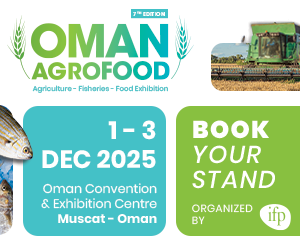The global vegan food market is projected to reach a valuation of USD 81.4 billion by 2033, growing from USD 25.3 billion in 2023 at a compound annual growth rate (CAGR) of 12.4% during 2024–2033. This growth is driven by rising awareness of environmental sustainability, animal welfare, and the health benefits associated with plant-based diets. Vegan food, encompassing meat substitutes, dairy alternatives, and plant-based snacks, has shifted from niche status to mainstream adoption as more consumers embrace cruelty-free and eco-friendly eating habits.
This rapidly evolving market is fueled by innovation across both startups and established food companies, reshaping supply chains and leveraging advanced food technologies. A global push for sustainable consumption has further highlighted the environmental impact of animal agriculture, which accounts for roughly 14.5% of greenhouse gas emissions according to the United Nations. Plant-based alternatives have gained traction as consumers and policymakers aim to address these concerns.
The health advantages of vegan diets, including lower risks of heart disease and obesity, are also driving market expansion. Advances in plant-based protein technologies, such as pea, soy, and mycoprotein, have enhanced product taste and texture, broadening consumer appeal. Key trends include clean-label products that prioritize transparency, as well as innovations like precision fermentation and cellular agriculture, which are paving the way for high-quality vegan dairy and meat alternatives. E-commerce platforms and expanded vegan options in the foodservice sector have further boosted accessibility and demand.
Future growth lies in diversifying product lines and tapping into underexplored regions like the Middle East, Africa, and parts of Latin America, where urbanization and evolving dietary habits present new opportunities. Partnerships with agricultural innovators are poised to enhance production scalability and affordability, encouraging widespread adoption.
Statistics underscore the market’s momentum: in 2021, the global vegan population exceeded 79 million, and plant-based food sales showed double-digit growth in several regions. As sustainability and health priorities remain central to global agendas, the vegan food industry is set to thrive, propelled by innovation, consumer demand, and supportive policies.
Key Takeaways:
- The global vegan food market is forecast to reach USD 81.4 billion by 2033, growing at a CAGR of 12.4%.
- Meat and seafood alternatives dominate the product category with over a 37.4% market share.
- Almond-based products lead the market by source, holding a 34.5% share.
- Supermarkets and hypermarkets remain the primary distribution channel, with a 53.3% share.
- North America leads globally, holding 41.2% of the market and valued at USD 10.4 billion.
Market Dynamics:
Consumer Trends: Growing health and environmental awareness is prompting shifts toward plant-based diets, supported by innovations in taste, texture, and sustainability.
Technological Advancements: Breakthroughs like precision fermentation and cellular agriculture are enabling the creation of plant-based products that closely mimic their animal-based counterparts.
Policy Support: Sustainability initiatives and public health campaigns are indirectly promoting the growth of vegan alternatives.
Competitive Landscape: Established corporations and agile startups are driving innovation and expanding the availability of vegan options through partnerships and acquisitions.
Product Analysis:
- Meat & Seafood Alternatives: Capturing 37.4% of the market in 2023, this segment is bolstered by innovations in texture and flavor.
- Creamers: Experiencing growth due to expanding varieties of oat, almond, and coconut-based products.
- Ice Cream & Frozen Novelties: Gaining popularity with new flavors and premium ingredients.
- Cheese Alternatives: Advancing in taste and culinary applications.
- Butter Alternatives: Increasing demand among both home and professional consumers.
- Protein Bars: Catering to health-conscious, active consumers seeking portable nutrition.
Source Analysis:
- Almond: The leading source, driven by its versatility in products like milk and snacks.
- Soy: A staple in vegan diets, known for high protein content.
- Oats: Rising in popularity for their health benefits and eco-friendly profile.
- Wheat: Particularly valuable for its meat-like texture in products like seitan.
Distribution Channels:
- Supermarkets/Hypermarkets: Leading with a 53.3% share due to variety and convenience.
- Convenience Stores: Significant for quick purchases.
- Online Retail: Gaining traction with expanded vegan offerings and improved delivery options.
By aligning strategies with global trends in health, sustainability, and technology, the vegan food industry is poised to remain one of the most transformative sectors in the food and beverage market.













































































